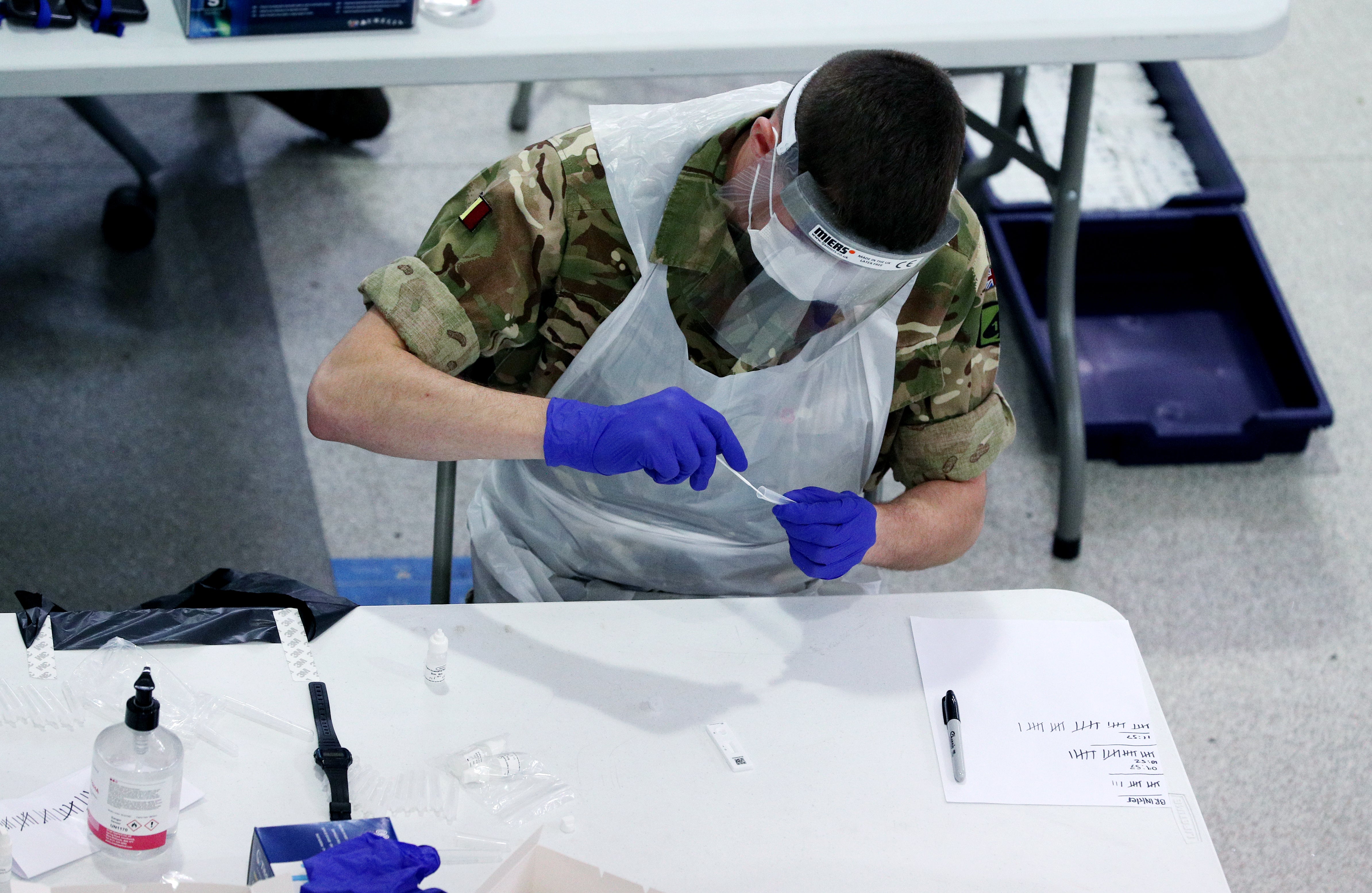Troops deployed to support London hospitals amid Omicron surge
Two hundred military personnel are being made available to the NHS in the capital as Covid-related staff absences continue to grow.

Troops are to begin deploying in London to support the NHS amid growing staff shortages due to Covid-19, the Ministry of Defence (MoD) has said.
Around 200 armed forces personnel are being made available to hospitals across the capital, which has been the epicentre of the Omicron outbreak with a huge upsurge in cases.
The announcement comes after Boris Johnson said this week that ministers hoped to “ride out” the latest wave without the need for further restrictions in England.
The MoD said the deployment included 40 military medics and 160 general duty personnel to help fill gaps caused by absences of NHS staff unable to work because they were ill or having to self-isolate.
They will be deployed in 40 teams of five – comprising one medic and four support personnel – and will be targeted at areas where the need is greatest.
It is expected they will be “on task” for the next three weeks.
In addition, 32 military co-responders are being provided to support the South Central Ambulance Service, working alongside paramedics until the end of March.
Defence Secretary Ben Wallace said: “The men and women of our armed forces are once again stepping up to support their dedicated colleagues in the NHS as they work hand-in-hand to protect the nation from Covid-19.
“They have shown their worth time and again throughout this pandemic, whether driving ambulances, administering vaccines or supporting patients in hospital, and they should be proud of their contribution to this truly national effort.”
However, the Royal College of Nursing’s director for England, Patricia Marquis, said the deployment meant the Government could no longer deny there was a “staffing crisis” in the NHS.
“The Prime Minister and others can no longer be dismissive of questions about the ability of NHS staff to deliver safe care,” she said.
“Once the military has been brought in, where does the Government turn next in a bid to ‘ride out’ the wave rather than deal with it?”
Around 1,800 service personnel are already deployed across the UK to support the civil authorities in their response to the pandemic.
They include 313 personnel assisting the Welsh Ambulance Service NHS Trust and 96 with the Scottish Ambulance Service, while more than 1,000 are helping the vaccine booster programme.
The announcement comes as the PA news agency understands that as of Thursday, 17 hospital trusts in England had declared critical incidents – an alert to signal that there are fears priority services cannot be safely delivered.
Government figures showed there were 17,988 people in hospital in the UK with Covid-19 as of January 5, up 50% week-on-week and the highest total since February 18.
Infections remain high, with the latest official figures showing there were a further 179,756 lab-confirmed cases of the virus recorded in the UK as of 9am on Thursday.
Meanwhile, there are signs that schools are also coming under pressure, with a third of school leaders reporting staff absence rates of more than 10% for Covid-related reasons, according to a survey by the NAHT union.
The snap poll found the overwhelming majority (95%) had pupils off due to Covid at the start of term, while 29% said more than 10% of their students were absent.
Paul Whiteman, general secretary of the NAHT, has warned that schools were “teetering on the edge” with considerable shortages, adding that absences due to illness may “very likely rise” during the term.
Meanwhile, the Welsh Government has said that alert 2 measures introduced after Christmas – including limits on people mixing – will remain in place for at least another week.
Following the latest review of the regulations, First Minister Mark Drakeford said the country was facing a “difficult month ahead” as cases, which have risen to their highest-ever levels, look set to surge further.
Bookmark popover
Removed from bookmarks